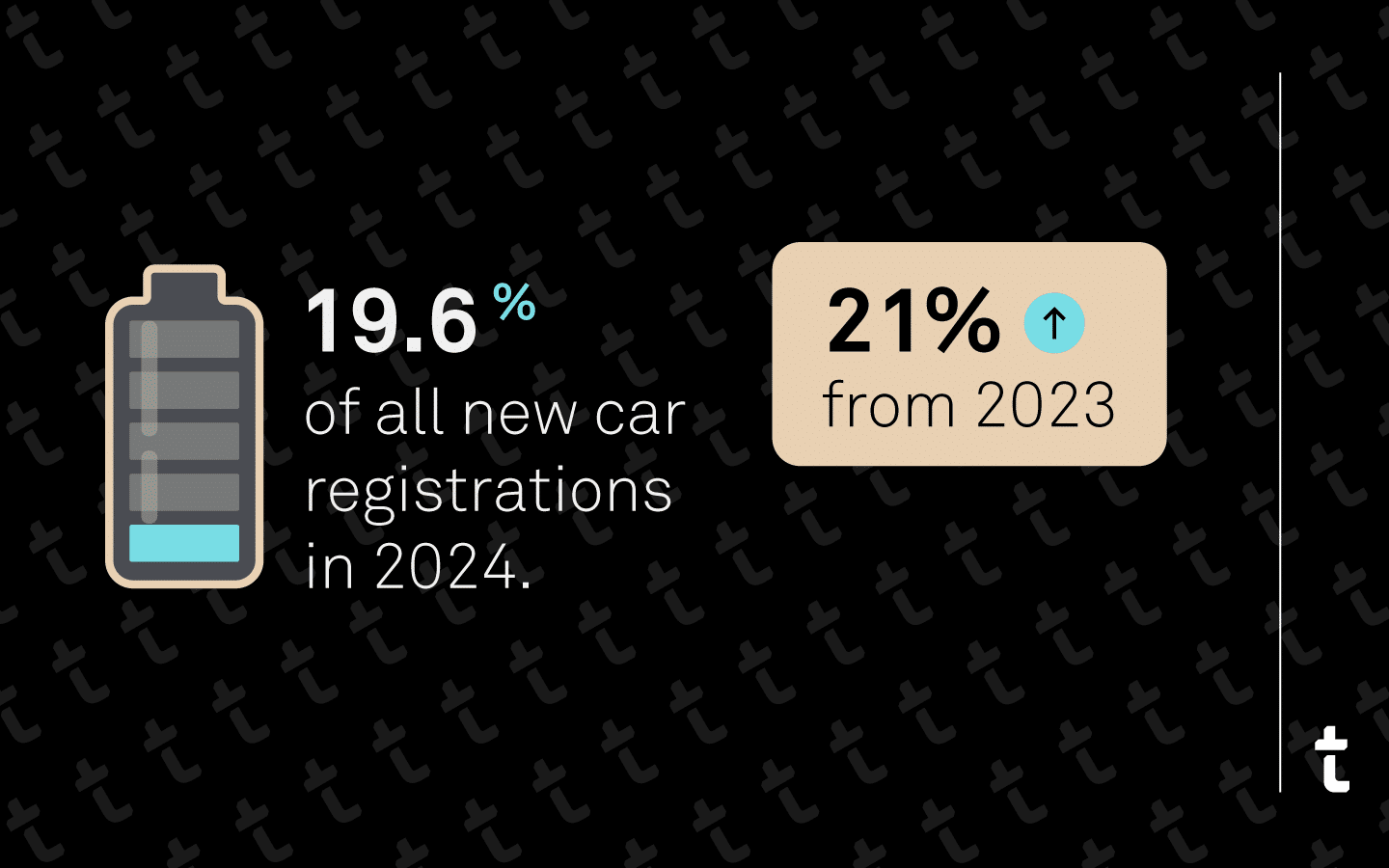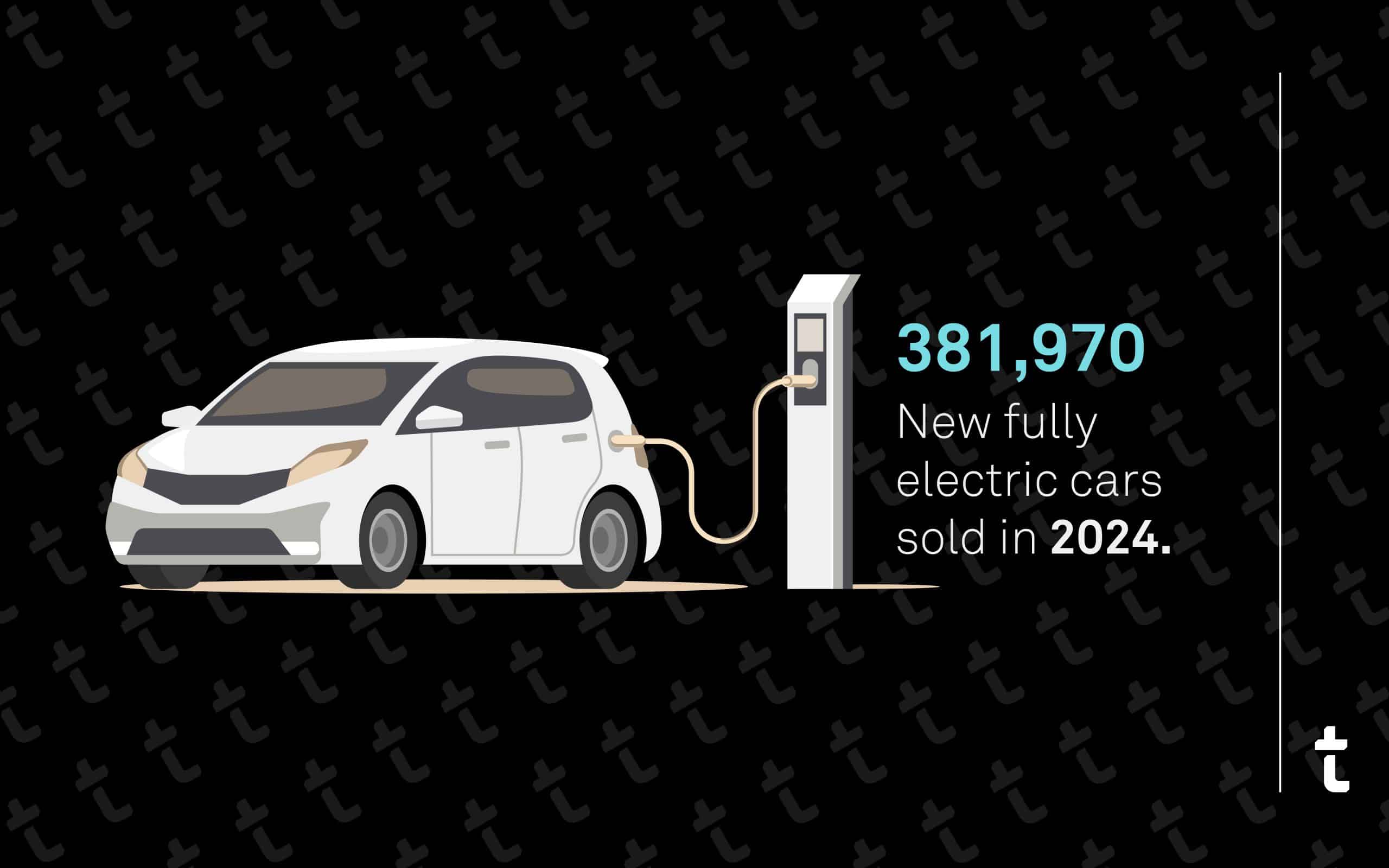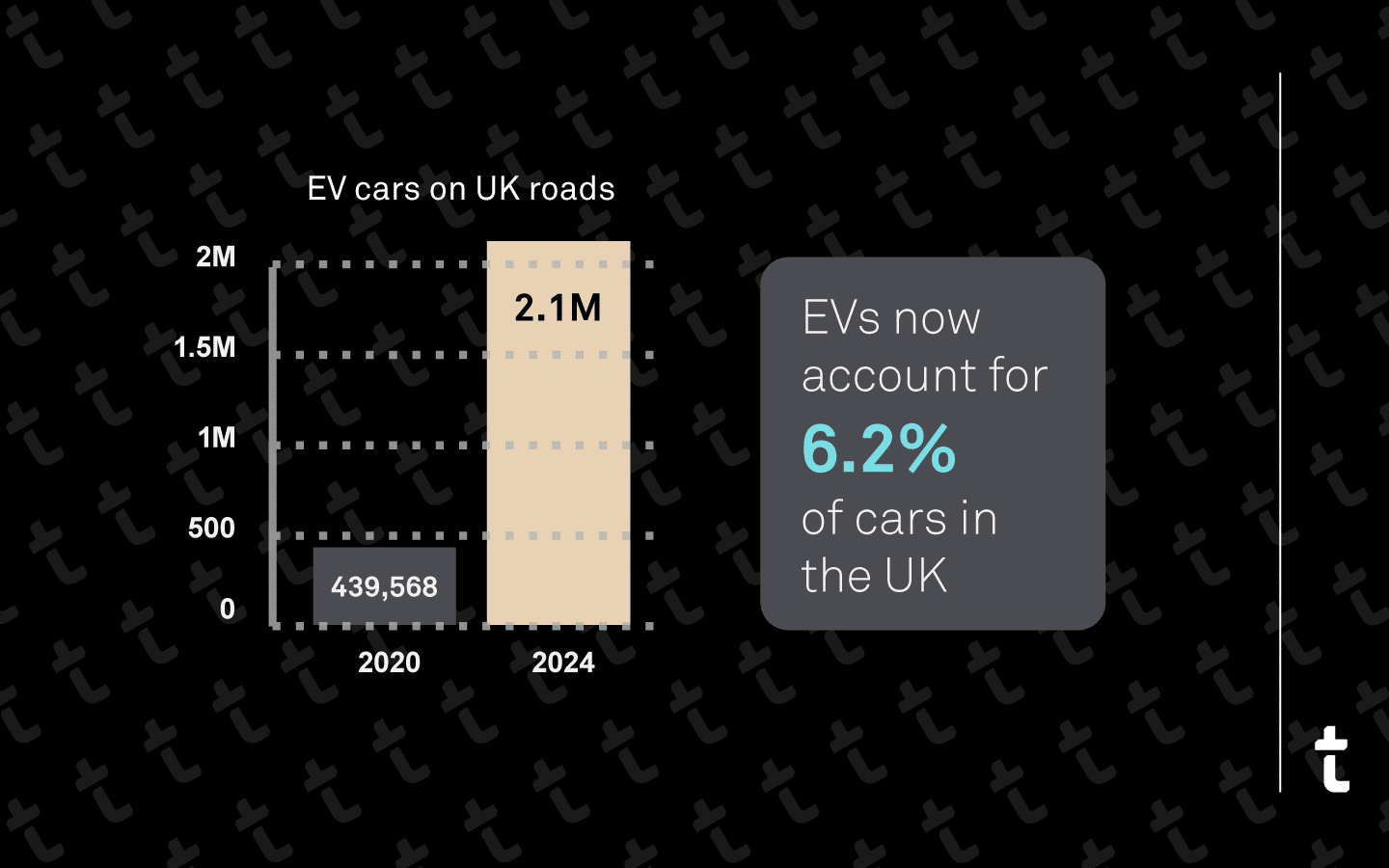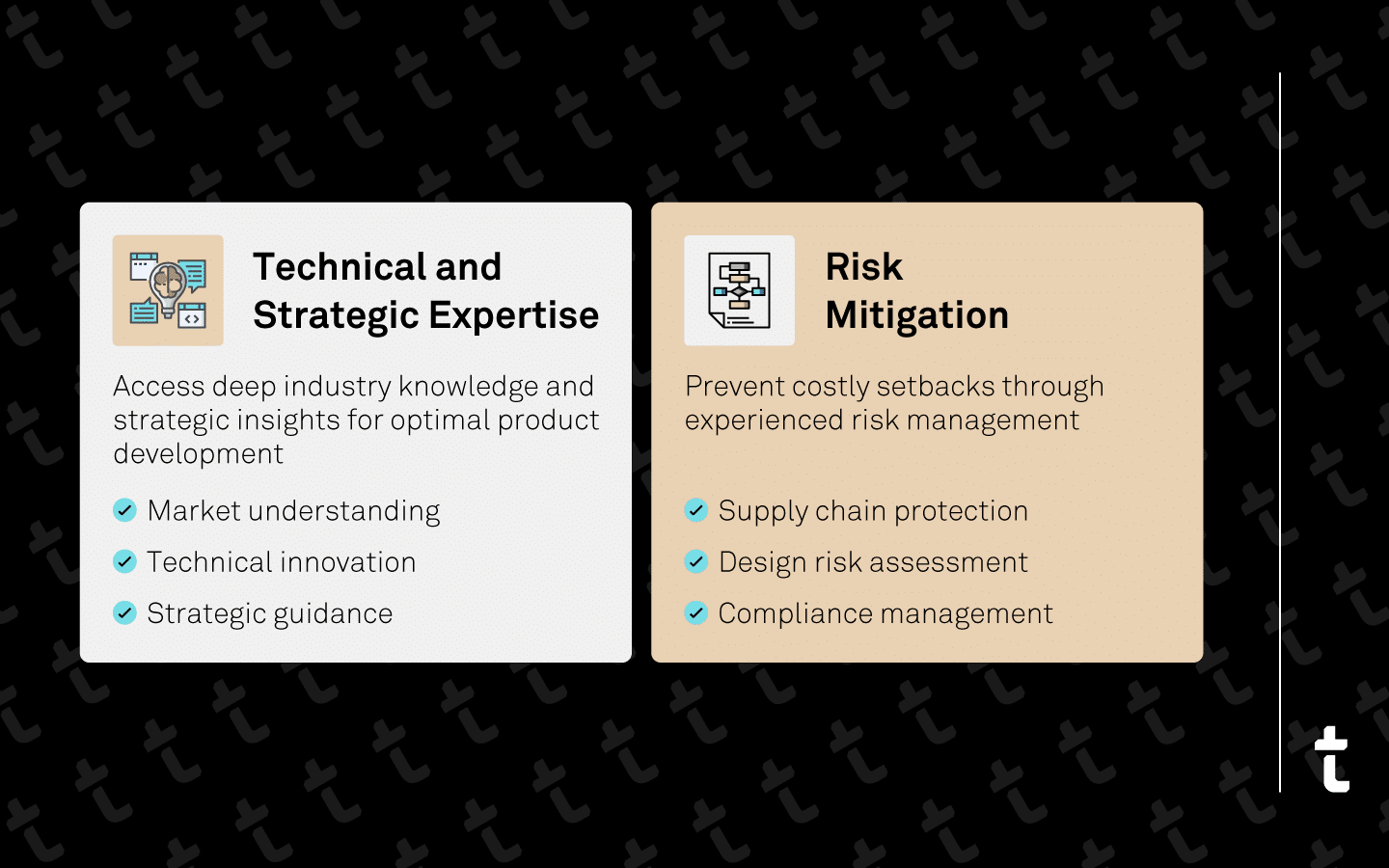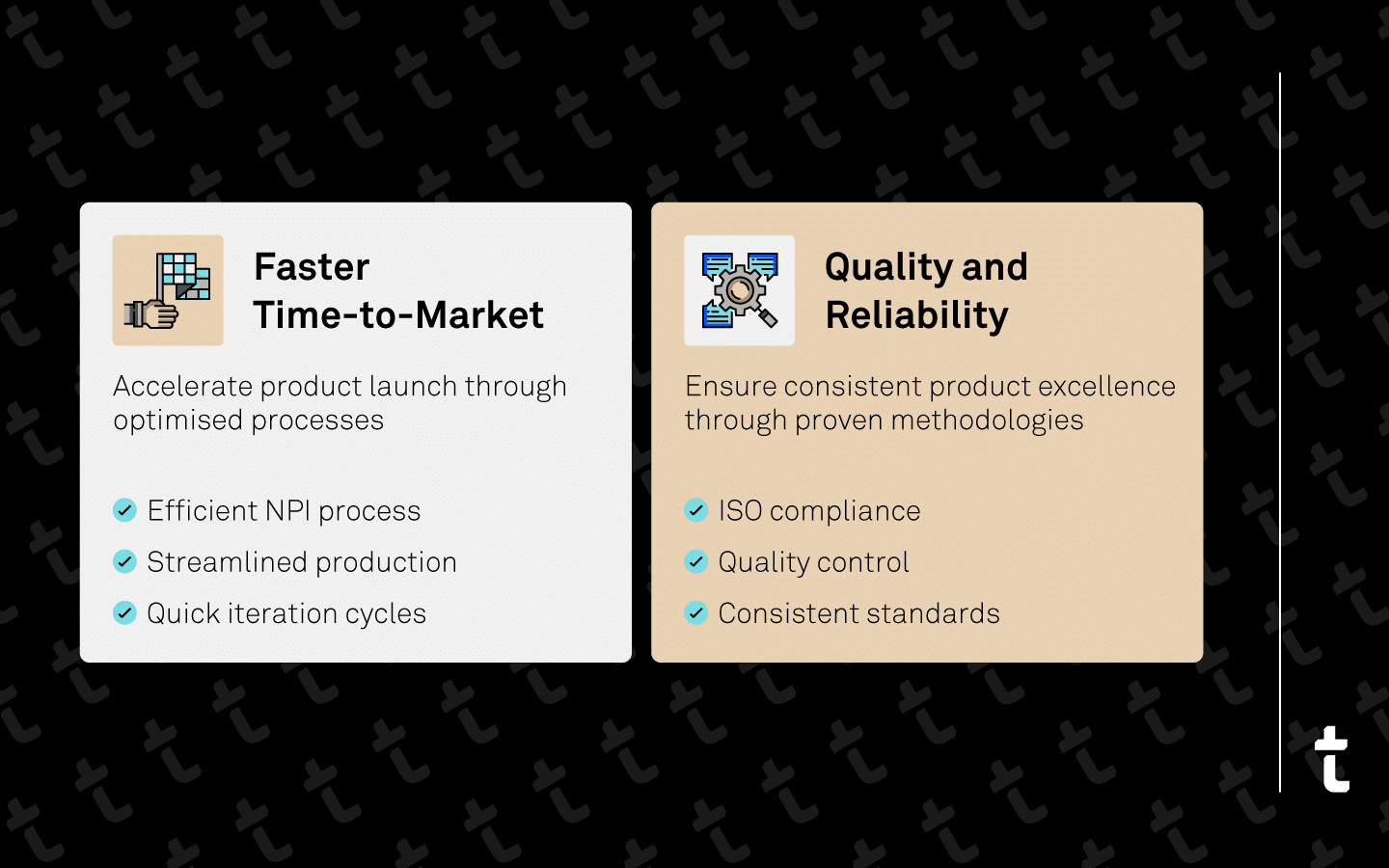The Growth of Electric Mobility
The global electric mobility landscape is expanding at an extraordinary pace, fueled by ever-growing consumer demand and supportive government policies. In the UK alone, 2024 marked a milestone year with 381,970 new fully electric cars sold representing a 19.6% share of all newly registered cars.
This is a notable 21% increase from 2023, reflecting the steady rise in electric vehicle charging solutions and infrastructure to support mass-market adoption. Overall, the number of electric vehicles (EVs) on UK roads grew from 439,568 in 2020 to 2,118,822 in 2024, taking EVs to 6.2% of the vehicle population (Zap-Map).
Such growth is not limited to private cars. Electric buses, trucks, and last-mile delivery vehicles are all moving toward electrification, driving up demand for both private and public EV charging infrastructure at a pace that is projected to increase sixfold by 2035 (IEA). In the UK specifically, the government aims to install at least 300,000 public chargers by 2030, a figure that underscores the importance of robust power infrastructure, supply chain efficiency, and grid resilience for a successful transition (UK Gov).
In parallel to public charging, private charging solutions from home chargers to warehouse and depot charging hubs are also proliferating. Although the UK’s National Grid has indicated it can meet the increase in demand from EVs (National Grid), challenges arise in safely retrofitting aging buildings, installing faster charging speeds, and balancing peak load demands on local power networks.
For start-ups and scale-ups in this flourishing market, a unique window of opportunity exists. Many are introducing disruptive electric mobility solutions across hardware, software, and services. However, this opportunity also brings a complex set of challenges such as manufacturing at scale, navigating supply chain in manufacturing, and meeting stringent regulatory and compliance standards. The following sections explore these hurdles and how to overcome them effectively, paving the way for a successful commercial launch.
The Biggest Challenges Facing EV Start-Ups and Scale-Ups

Building an electric vehicle charger, a new e-bike prototype, or an entire fleet of EV delivery vans is a massive undertaking, even for well-established companies. For start-ups and scale-ups, the stakes are higher given limited resources and the rapid evolution of the EV market. Below are four critical barriers to commercial success in electric mobility:
- Manufacturing at Scale
Transitioning from a handful of prototypes to mass production is no small feat. Common pain points are ensuring consistent product quality, managing rising production costs, and sustaining throughput. Start-ups must incorporate Design for Manufacture and Assembly (DFMA) principles early to avoid last-minute engineering overhauls. - Supply Chain Complexity
An EV or electric vehicle charger can comprise hundreds of components sourced globally from EV battery manufacturers to small electronics suppliers. Coordinating deliveries, ensuring part quality, and maintaining stable supplier relationships is critical. Late or poor-quality components can derail an entire production run. - Regulatory and Compliance Barriers
Safety, performance, and environmental regulations in the EV industry are rigorous. Meeting standards like ISO 26262 (functional safety) or certifications for electric vehicle charging solutions is both time-consuming and resource-intensive. - Time-to-Market Pressure
In a rapidly growing sector, delays in getting a product to market can result in missed opportunities and lost market share. Effective NPI (New Product Introduction) processes are crucial for accelerating development without sacrificing quality.
Each challenge requires targeted expertise in product manufacturing services, manufacturing supply chain management, and compliance. When combined, these challenges create a formidable barrier that many young EV companies struggle to overcome without external support.
From Concept to Scalable Reality within the EV Charging Infrastructure
As EV adoption surges, innovative EV charging solutions have grown to include rapid charging, wireless charging, and vehicle-to-grid (V2G) technologies. Turning these ideas into commercially viable products demands a strategic approach that addresses design refinement, pilot production, and eventual scale-up.
The Tharsus “Solve + Scale + Supply” Approach
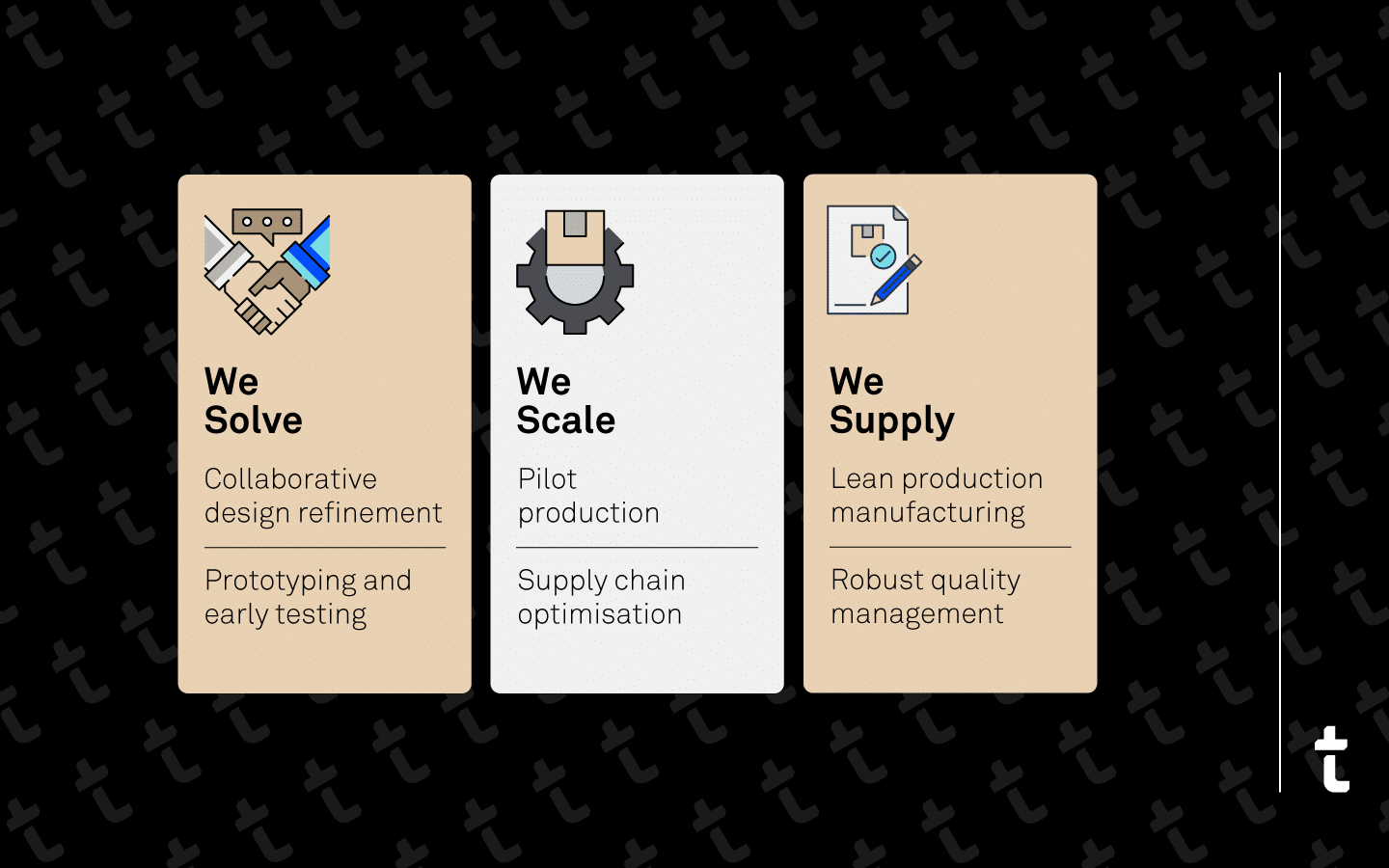
Tharsus employs a proven methodology for helping companies commercialise complex technologies:
Solve Phase:
- Collaborative Design Refinement: Our engineering and design teams work hand-in-hand with clients to identify potential pitfalls and streamline product designs.
- Prototyping & Early Testing: We provide rapid prototyping and DFMA guidance to resolve mechanical, electrical, and functional issues well before entering full production.
Scale Phase:
- Pilot Production: Small-batch runs validate manufacturing workflows, tooling, and logistics. This ensures readiness for higher-volume production without compromising quality.
- Supply Chain Optimisation: Our manufacturing supply chain specialists align material sourcing, inventory, and delivery schedules to meet market demand, while controlling costs.
Supply Phase:
- Lean Production Manufacturing: We implement lean practices to minimise waste and maintain consistent unit costs as volumes scale.
- Robust Quality Management Systems: Continuous inspections, ISO certifications, and traceability ensure that each unit meets regulatory and performance requirements.
Case Study: FreeWire Technologies
Amidst a rapidly expanding European electric vehicle market, FreeWire, were looking to break into the European market with its innovative EV charging infrastructure. Traditional high-power charging stations demand permanent high-voltage grid connections and expensive, time-consuming infrastructure builds constraints that could stifle the pace of EV adoption. FreeWire’s breakthrough, the Boost Charger™, leverages an integrated 160 kWh lithium-ion battery pack to deliver ultrafast charging without the need for extensive grid upgrades. This innovation not only slashes installation costs but also enables rapid, flexible deployment even in rural areas with limited access to high-voltage power.
By partnering with Tharsus, FreeWire was able to:
- Refine its Product design: Collaborate to optimise the Boost Charger™ for European markets, ensuring speed to market.
- Validate its Manufacturing Processes: Execute pilot manufacturing runs that confirmed the feasibility of scaling production while maintaining rigorous quality and safety standards.
- Scalable Manufacturing Readiness: Establish lean production methodologies and a robust quality framework, enabling a rapid rollout to meet surging market demand.
This strategic collaboration facilitated a swift market entry and paved the way for a significant UK deployment with BP Pulse an initial agreement potentially valued at over $50 million. We are proud to have supported FreeWire in its mission to revolutionise the EV charging infrastructure landscape and look forward to partnering with other innovators in the electric mobility sector.
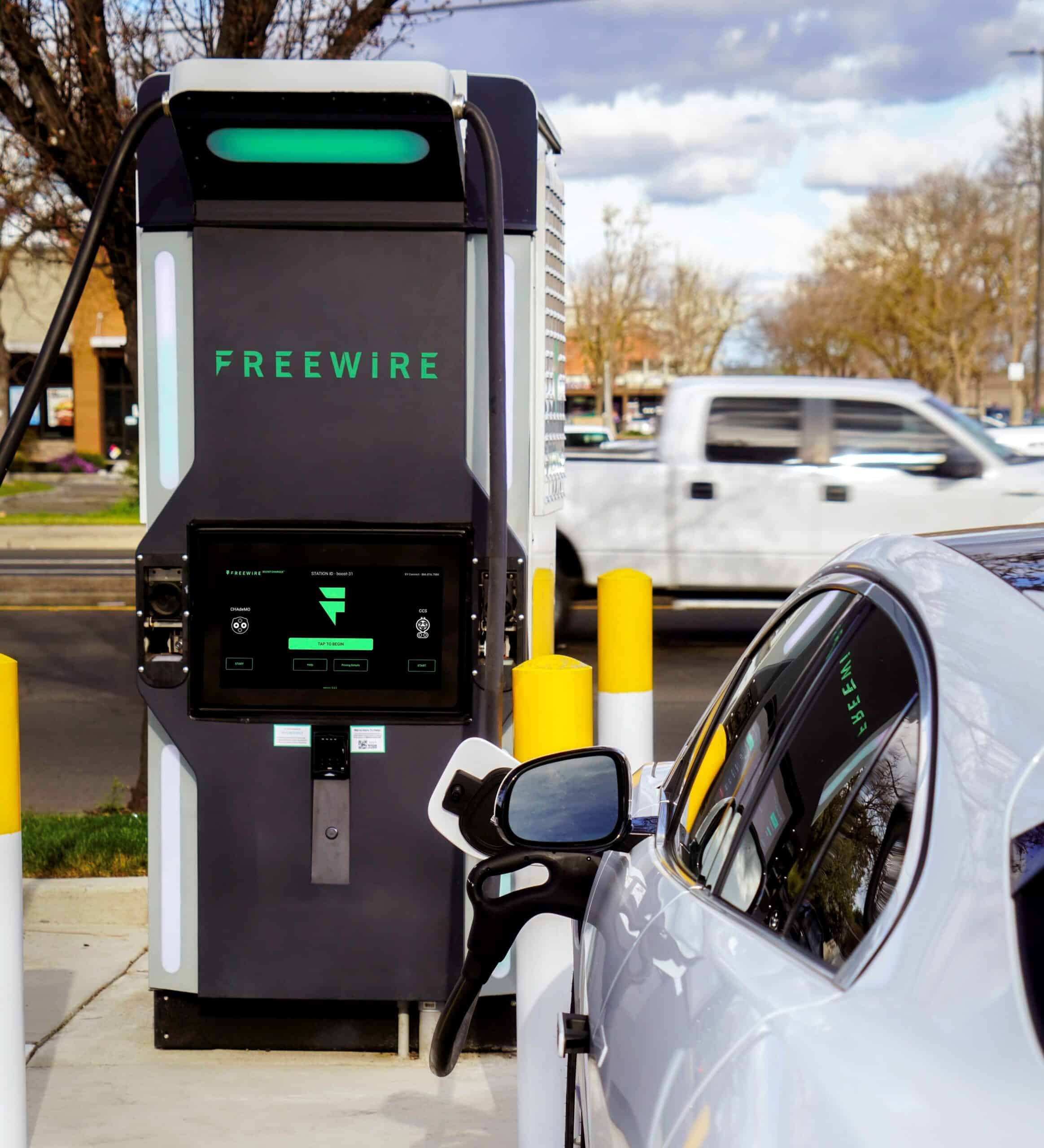
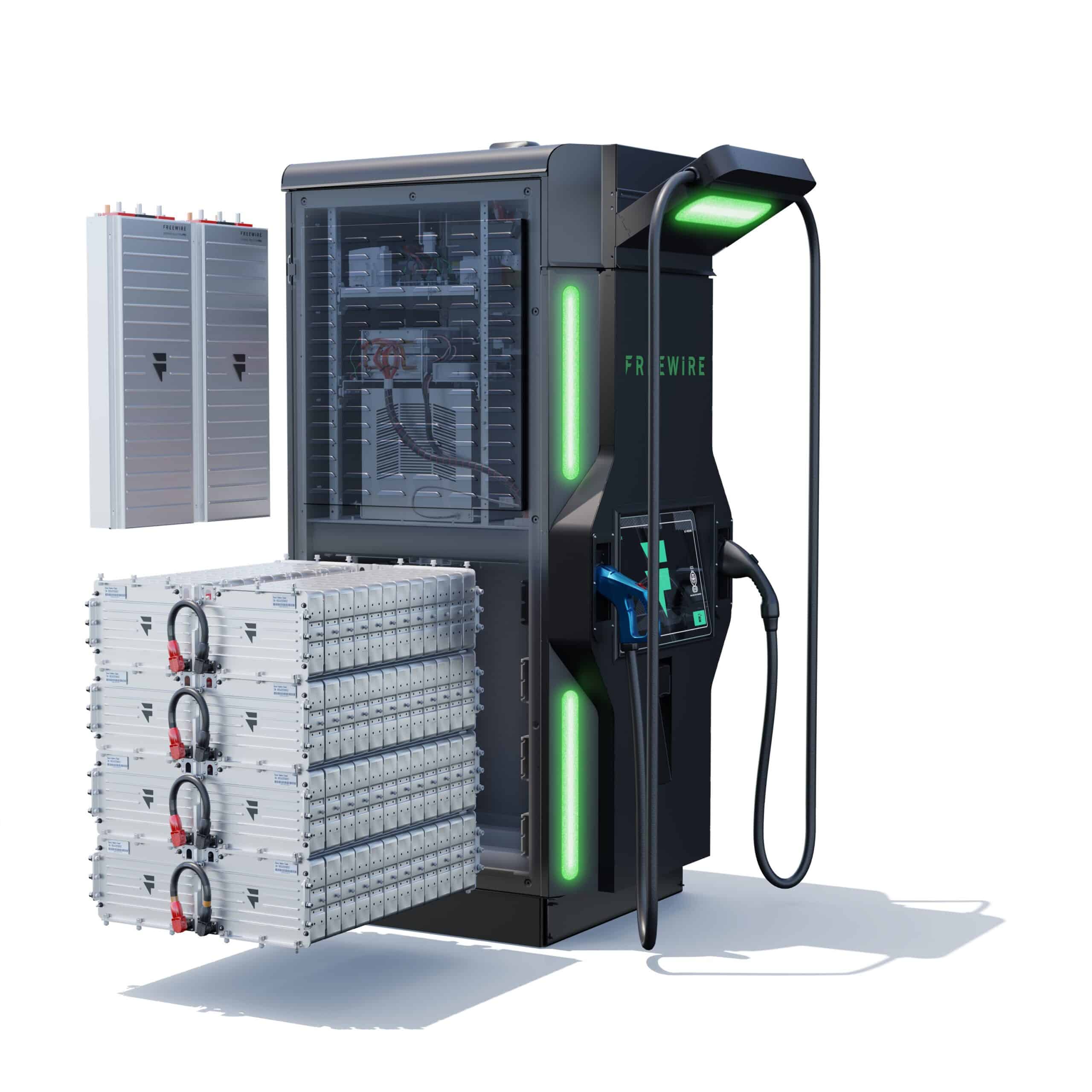
Building the Next Generation of Electric Mobility Technology
Beyond EV chargers and passenger cars, the electric mobility solutions landscape is expanding into:
- Electric Vans and Trucks: As freight and logistics electrify, demand surges for specialised battery systems, rapid charging, and efficient powertrain solutions. The UK aims to phase out non-zero-emission trucks by 2035 (for vehicles up to 26 tonnes) and by 2040 for heavier classes.
- Autonomous Delivery Robots and Vehicles: Automated systems for last-mile deliveries require advanced sensors, robust chassis engineering, and reliable battery technology.
- Urban Micro-mobility: E-bikes, e-scooters, and e-mopeds each require specialised product manufacturing services to ensure safety, durability, and cost-effectiveness in mass-market applications.
The central challenges remain:
- Developing scalable, cost-efficient components (motors, batteries, control systems).
- Ensuring design compliance with emerging EV regulations, from local emissions rules to global safety standards.
- Establishing integrated hardware-software ecosystems that can be seamlessly updated and maintained.
Tharsus offers end-to-end support for these new classes of electric mobility technologies leveraging an NPI process that de-risks the transition from concept, through pilot production, and onto the open market. This includes tight collaboration on design validation, lab testing for mechanical and software integration, and final assembly in a lean manufacturing environment.
Why Partnering with the Right Manufacturer Matters
In such a competitive and highly regulated sector, working with an experienced manufacturing partner is critical:
- Technical and Strategic Expertise: A seasoned partner understands not just the hardware, but also the broader market context. Tharsus has decades of experience in product manufacturing services and EV charging infrastructure.
- Risk Mitigation: From supply chain disruptions to design flaws, a robust partner can anticipate and mitigate risks, preventing costly setbacks.
- Faster Time-to-Market: By combining lean production with a well-managed manufacturing supply chain, you accelerate your NPI process and beat competitors to market.
- Quality and Reliability: Meeting ISO standards, ensuring product certifications, and maintaining consistent quality control is crucial. An established manufacturer with DFMA expertise and lean methodologies helps guarantee every unit meets stringent benchmarks.
Tharsus as Your Commercialisation Partner
Tharsus stands at the intersection of innovation and practical manufacturing know-how. Our team can help you:
- Translate your concept into a prototype-ready design.
- Validate technical assumptions through small-batch trials.
- Scale up production efficiently using lean production manufacturing.
- Maintain a stable and compliant supply chain in manufacturing.
Conclusion & Call to Action
The electric mobility sector is evolving at breakneck speed, offering unprecedented opportunities for start-ups and scale-ups. Yet, the journey from early prototype to commercial success is filled with challenges manufacturing at scale, navigating the manufacturing supply chain, achieving regulatory compliance, and racing against time to deliver a market-ready product. By forging the right partnerships and adopting a structured NPI process, innovators can transform raw ideas into game-changing electric mobility solutions that meet real-world demand.
Looking to take your electric mobility innovation from concept to commercial success? Let’s talk. Tharsus is here to guide you through every stage of the journey Solve, Scale, and Supply. Contact us today to explore how we can help you disrupt the EV market with confidence and long-term success.

